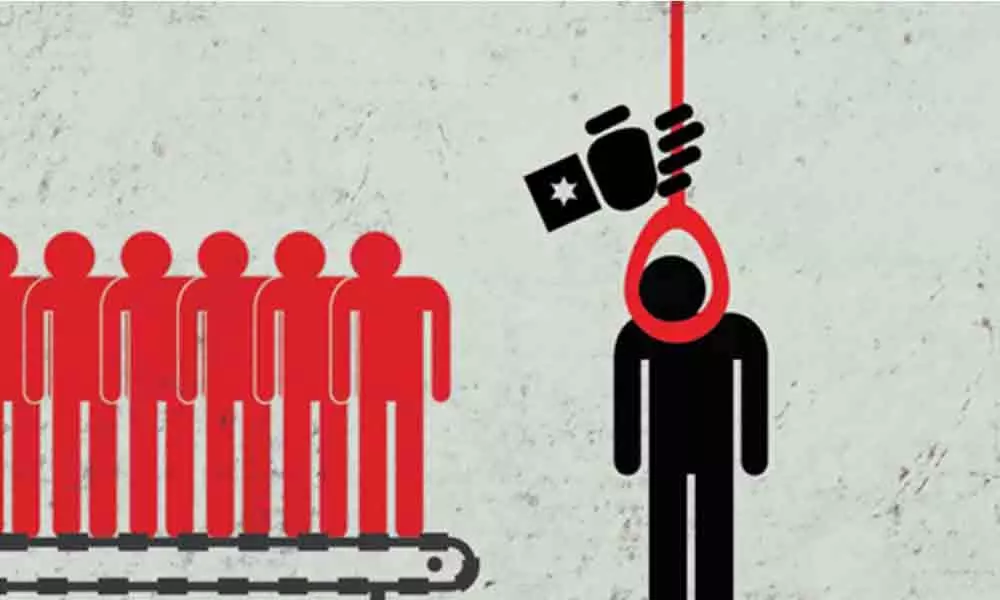Capital punishment no deterrent to rape, murder

On December 6 last year, the Cyberabad police revealed the appalling news that the four accused have been encountered in retaliation to the rape and murder of a young veterinarian on November 27.
On December 6 last year, the Cyberabad police revealed the appalling news that the four accused have been encountered in retaliation to the rape and murder of a young veterinarian on November 27. Following the incident, the Andhra Pradesh government introduced Disha Bill (Andhra Pradesh Criminal Amendment Bill, 2019) in the Assembly.
The objective and the content of the Bill reflects the agitated public opinion after the Disha incident. The main aspect of this Bill is that it provides capital punishment for offences of rape, gang rape and accelerates the 4 months of verdict time from Nirbhaya Act, 2013 and Criminal Amendment Act, 2018 to 21 days.
The time that has been allotted for the total procedure is 21 days which makes it unreasonable when coupled with the extreme punishment. It ignores the principle of proof of beyond reasonable doubt, considering gathering evidences enough to prove beyond reasonable doubt would take a good enough time for all the practical purposes and such proceedings can't be arbitrary.
The drawback of Indian judiciary is its delay in disposal of cases especially criminal cases because of some unavoidable circumstances, but at the same time a basic human right like the right to free and fair trial of an accused cannot be compromised with.
A law should aim at the deterrence of the crime and it should not act as revenge for the crime. Deterrence is probably the most commonly expressed rationale for the death penalty. The essence of the theory is that the threat of being executed in the future will be sufficient to cause a significant number of people to refrain from committing a heinous crime they had otherwise planned.
Deterrence is not principally concerned with the prevention of further killing by an already convicted death-penalty defendant. That falls under the topic of incapacitation. Scientists agree, by an overwhelming majority, that death penalty has no deterrent effect.
The threat of execution at some future date is unlikely to enter the mind of those acting under the influence of drugs or alcohol, those who are in the grip of fear or rage, those who are panicking while committing crime, or those who suffer from mental illness or mental retardation and do not fully understand the gravity of their crime.
The incident of Disha made the public go into the rage and started criticising the government and the law. And soon after this became a hue and cry of the public and tried to convey that the law is not sufficient to protect the women and also about the changes and amendments that have to be made to the laws.
There is a relation between the morals and law. By ignoring the facts and aftermath of passing of the Act, ignoring the important question that how this capital punishment going to serve in the future and also by ignoring the criticisms, the lawmakers who are greatly influenced by the public emotions just passed the law to satisfy the public and to impress the public.
Siddartha Sai, Kadiri, Anantapur dist, AP














